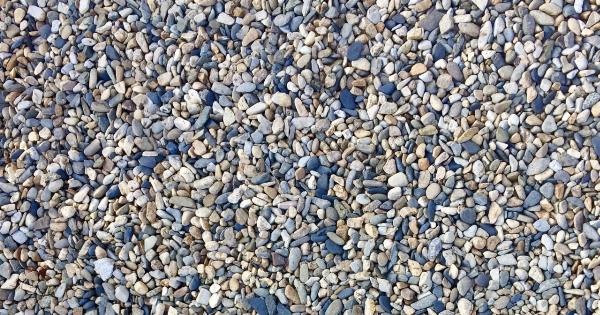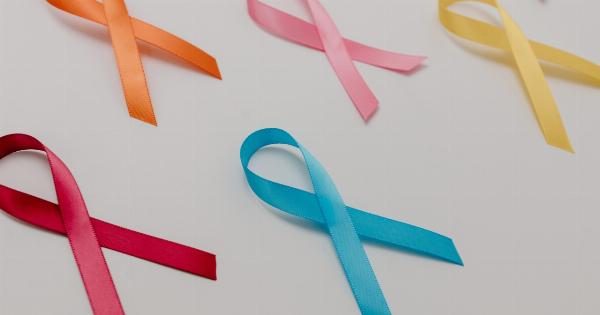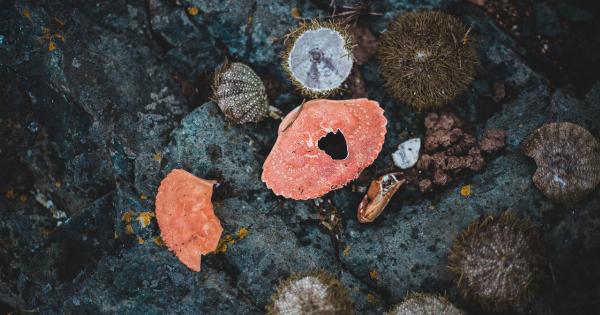Urinary stone formation, also known as urolithiasis, affects millions of people worldwide. It occurs when solid crystals or stones develop in the urinary tract, which includes the kidneys, ureters, bladder, and urethra.
These stones can vary in size and composition, and different types of stones require different prevention and treatment strategies. Understanding the various types of urinary stones can help you protect yourself against their formation.
Calcium Oxalate Stones
Calcium oxalate stones are the most common type of urinary stones. They are formed when calcium and oxalate combine in the urine and crystallize.
Certain medical conditions, such as hypercalcemia and hyperoxaluria, increase the risk of developing these stones. Additionally, a diet high in oxalate-rich foods, such as spinach, rhubarb, and nuts, can contribute to their formation.
To protect yourself against calcium oxalate stones, it is essential to stay hydrated, maintain a balanced diet, limit oxalate-rich foods, and, if necessary, take medication to reduce calcium and oxalate levels in the urine.
Calcium Phosphate Stones
Calcium phosphate stones are another common type of urinary stones. They form when calcium and phosphate combine in the urine and crystallize.
These stones can be caused by a variety of factors, including urinary tract infections, metabolic disorders, and certain medications. To prevent calcium phosphate stone formation, it is important to maintain a healthy urinary tract, practice good hygiene, and manage any underlying medical conditions that may increase your risk.
Uric Acid Stones
Uric acid stones are formed when there is an excess of uric acid in the urine. These stones are more likely to occur in individuals who have a high intake of purine-rich foods, such as organ meats, seafood, and beer.
Additionally, certain medical conditions, such as gout and metabolic syndrome, increase the risk of developing uric acid stones. To protect yourself against these stones, it is important to stay well hydrated, limit purine-rich foods, maintain a healthy weight, and manage any underlying medical conditions.
Cystine Stones
Cystine stones are relatively rare and occur as a result of a hereditary disorder called cystinuria. This condition causes an abnormal transport of certain amino acids, including cystine, in the kidneys.
As a result, cystine builds up in the urine and forms crystals, which can lead to stone formation. To prevent cystine stone formation, it is important to drink plenty of fluids, maintain a low-sodium diet, and take medication, such as tiopronin, to reduce cystine levels in the urine.
Struvite Stones
Struvite stones, also known as infection stones, are typically composed of magnesium, ammonium, and phosphate. These stones are usually associated with chronic urinary tract infections caused by certain bacteria, such as Proteus or Klebsiella.
To protect yourself against struvite stone formation, it is important to practice good hygiene, promptly treat any urinary tract infections, and follow appropriate antibiotic therapies as prescribed by your healthcare provider.
Tactics for Protecting Against Urinary Stone Formation
Preventing urinary stone formation involves adopting certain lifestyle modifications and implementing preventive measures. Here are some tactics to protect yourself:.
1. Stay Hydrated
Proper hydration is crucial in preventing stone formation, as it helps to dilute urine and prevent crystal formation. Aim to drink at least eight cups (64 ounces) of water per day.
If you have a history of stone formation or reside in a hot climate, you may need to increase your fluid intake further. Regularly monitor the color of your urine; it should be light yellow or clear, indicating adequate hydration.
2. Eat a Balanced Diet
A balanced diet can play a significant role in preventing certain types of urinary stones. Aim to consume a variety of fruits, vegetables, whole grains, and lean proteins. Limit your intake of oxalate-rich foods if you are prone to calcium oxalate stones.
Reduce the consumption of purine-rich foods if you are at risk of uric acid stones. Additionally, it is advisable to limit the intake of sodium, as excessive sodium can increase calcium excretion in the urine, contributing to stone formation.
3. Manage Weight and Blood Pressure
Being overweight or obese can increase the risk of urinary stone formation. Adopt a healthy lifestyle that includes regular physical activity and a well-balanced diet to maintain a healthy weight.
Additionally, manage your blood pressure as high blood pressure can increase the risk of developing certain types of stones. Consult your healthcare provider for guidance on managing weight and blood pressure effectively.
4. Limit Alcohol and Caffeine Intake
Excessive alcohol and caffeine consumption can lead to dehydration, which can contribute to stone formation. Additionally, alcohol can increase uric acid production and raise the risk of uric acid stones.
Limit your intake of alcoholic and caffeinated beverages, and opt for healthier alternatives such as water, herbal tea, and natural juices.
5. Reduce Sodium Intake
High sodium levels in the body can increase the excretion of calcium in the urine, leading to stone formation. Limit your intake of processed foods, fast food, and salty snacks.
Instead, choose fresh and minimally processed foods and opt for herbs and spices to enhance the flavor of your meals.
6. Practice Good Hygiene
Maintaining good hygiene is crucial in preventing urinary tract infections, which can contribute to stone formation.
Practice regular handwashing, wipe front to back after urination or bowel movements, and regularly change sanitary pads or tampons as needed. These simple measures can reduce the risk of bacterial contamination, especially in women.
7. Follow Prescription Medication
If you have an underlying medical condition that increases the risk of urinary stone formation, follow your healthcare provider’s prescribed medication regimen.
This may include medications to manage calcium, oxalate, or uric acid levels in the urine. It is important to take the medications as directed and attend regular follow-up appointments to monitor your condition.
8. Monitor Your urine pH
Urine pH can play a role in stone formation. For example, alkaline urine pH may increase the risk of calcium phosphate stones, while acidic urine pH may increase the risk of uric acid stones.
Monitoring your urine pH can help you identify any deviations and allow for timely adjustments in your diet or medications, if necessary. However, consult your healthcare provider before making any changes.
9. Consider Dietary Supplements
In some cases, your healthcare provider may recommend certain dietary supplements to prevent urinary stone formation.
These may include citrate supplements, which can help prevent calcium-containing stones, or vitamin B6 supplements, which can help reduce oxalate levels in the urine. However, it is important to consult your healthcare provider before initiating any dietary supplements.
10. Regularly Monitor Your Kidney Function
If you have a history of urinary stone formation or are at a higher risk, it is crucial to monitor your kidney function regularly.
Regular kidney function tests, including blood tests and urine analysis, can help detect any early signs of stone formation or related complications. Follow your healthcare provider’s recommendations for routine check-ups, and report any concerning symptoms promptly.






























